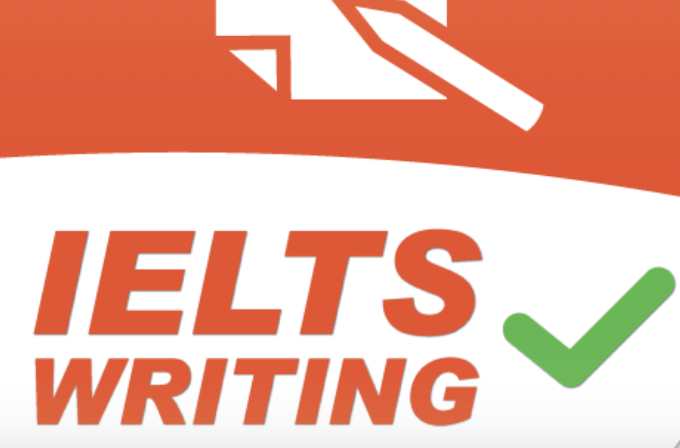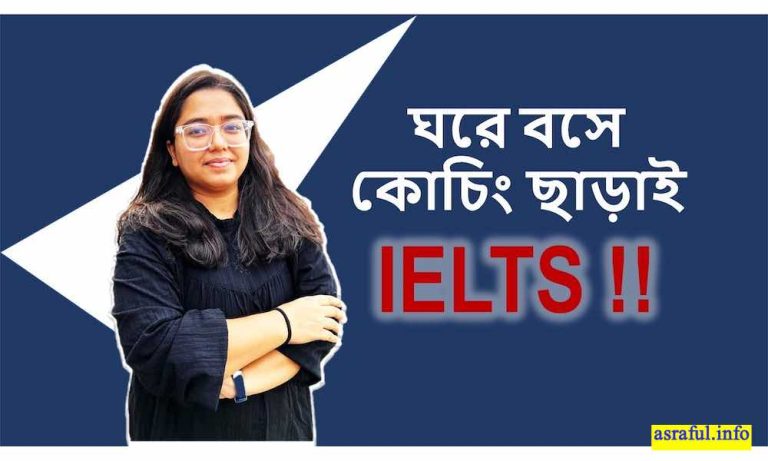032 Tense (Active-Passive)
১২ প্রকার Tense এর গঠন-
| Types ⇨ Forms⇩ |
Present | Past | Future |
| Indefinite | Sub + V1(s/es) + Obj
[শুধুমাত্র 3rd Person Singular Number-এর ক্ষেত্রে v1-এর শেষে ‘s’ বা ‘es’ যােগ হয়] [v1 না হয়ে Be verb1 হলে am/is/are বসে] কোন কাজ বর্তমানে হয় বোঝালে বা অভ্যাসগত সত্য বোঝালে বা চিরসত্য বোঝালে Present Indefinite Tenseহয়। যেমন- · আমি যাই – I go · সে (স্কুলে) যায় – He goes to school. · সূর্য পূর্ব দিকে ওঠে – The Sun rises in the east. সে প্রত্যহ এখানে আসে -He comes here everyday. · I am Student. Interrogative (প্রশ্নবোধক) Sentence এর ক্ষেত্রে ‘do’ verb আসে। যেমন– · আমি কি যাই? Do I go? · সে কি যাই? Does he go? Negative (না-বোধক) sentence করতে হলে ‘do not’ বা 3rd person singular number এ ‘does not’ হয়। যেমন– · আমি যাই না – I do not go. · সে যাই না – He does not go. |
Sub + V2 +Obj
[v2 না হয়ে Be verb2 হলে was/were বসে] অতীত কালের কোন কাজ বোঝাতে বা অতীতের কোন অভ্যাস বোঝাতে, যার ফল এখন আর বিদ্যমান নেই তাকে Past Indefinite Tense বলে। যেমন- · আমি স্কুলে গেছিলাম/গিয়েছিলাম – I went to school. · Sadia & Israt were friends. Interrogative করতে হলে Sentence-এর প্রথমে ‘Did’ বসে এবং তারপর Subject, পরে Verb এর- Present form বসে। যেমন– · সে কি গিয়েছিল? Did he go? · তুমি কি গিয়েছিলে? Did you go? Negative করতে হলে Subject-এর পর ‘did not’ এবং তারপর Verb-এর Present form বসে। যেমন: · সে যায় নাই – He did not go. · তুমি যাও নাই – You did not go. |
Sub + Shall/ Will + v1 +Obj
[বক্তার প্রতিজ্ঞা-সংকল্প, আদেশ-উপদেশ, ভীতিপ্রদর্শন ইত্যাদি প্রকাশ ক্ষেত্রে, 1st Personএ will ব্যবহার করা হয়, আর 3rd Personএ Shall ব্যবহার করা হয়।] // [জোর দেওয়া বােঝালে 1st Person এরপরwillবসে, অন্যত্র shallবসে।] যেমন: · আমি যাবই – I will go. · সে যাবেই – He shall go.
ভবিষ্যতে কোন কাজ ঘটবে এরূপ বোঝালে Future indefinite tense হয়। · He will play football. · I shall do the assignment later. Interrogative করতে হলে shall বা will প্রথমে আসে। যেমন: · সে কি যাবে ? Will he go? Negative করতে হলে shallবা will-এর পর not হয়। যেমন: · সে যাবে না। He will not go. |
| Continuous | Sub + am/is/are + V1(ing) + obj
বর্তমানে কোন কাজ চলছে বা নিকট ভবিষ্যতে চলবে এরূপ বোঝালে present continuous tenseহয়। যেমন- · আমি আজ রাতে ঢাকা যাব – I am going to Dhaka tonight. (Near future) · সে স্কুলে যাইতেছে – He is going to school. Interrogative করতে হলে am, is, areবসে sentence-এর প্রথমে। যেমন: · আমি কি যাচ্ছি? Am I going? · সে কি যাচ্ছে? – Is he going? Negative করতে হলে am, is, are এর পরেই not বসে। যেমন: · আমি যাচ্ছি না- I am not going. · সে যাচ্ছে না- He is not going. |
Sub + was/ were + v1(ing) + obj
অতীতকালে কোন কাজ কিছুক্ষণ ধরে চলছিল এরূপ বোঝালে Past continuous tense হয়। যেমন- · – আমি ভাত খাইতেছিলাম/খাচ্ছিলাম – I was eating rice. · – সে স্কুলে যাইতেছিল/যাচ্ছিল – He was going to school. Interrogative করতে হলে was বা were-কে sentence-এর প্রথমে আনতে হয়। যেমন: · সে কি যাচ্ছিল (যাইতেছিল)? – Was he going? · তুমি কি যাচ্ছিলে (যাইতেছিলে)? Where are you going? Negative করতে হলে was বা were এর পর not বসাতে হয়।যেমন: · সে যাচ্ছিল না। He was not going. · তুমি যাচ্ছিলে না। You were not going. |
Sub + Shall be / will be + v1(ing) + obj
ভবিষ্যৎ কালে কোন কাজ চলতে থাকবে এরূপ বোঝালে Future continuous tense হয়। যেমন- · – আমি বইটি পড়িতে থাকিব – I shall be reading the book. · – তিনি অফিসে যাইতে থাকিবেন- He will be going to office. Interrogative করতে হলে shall বা will প্রথমে আসে। যেমন: · আমি কি যেতে থাকব? Shall I be going? · রাম কি যেতে থাকবে? Will Ram be going? Negative করতে হলে shall বা will এর পর not হয়। যেমন: · আমি যেতে থাকব না? I shall not be going? · রাম যেতে থাকবে না? Ram will not be going? |
| Perfect | Sub + have/ has + V3 + obj
[Subject third person singular number বোঝালে has বসবে । আর, subject plural number বোঝালে have বসবে।] কোন কাজ এইমাত্র শেষ হয়েছে অথচ তার ফল এখনও বর্তমান আছে(অপ্রকাশিত), এরূপ বোঝালে Present perfect tense হয়। যেমন- · আমি ভাত খাইয়াছি – I have eaten rice. · আমি স্কুলে গিয়েছি – I have gone to school Interrogative-এর ক্ষেত্রে have/has হয় sentence-এর প্রথমে যেমন: · আমি কি গিয়েছি? Have I gone? · সে কি গিয়েছে? Has he gone? Negative-এর ক্ষেত্রে have/has-এর পর not বসে। · আমি গেছি না (যাই নাই) I have not gone. · সে গিয়েছে না (যায় নাই) He has not gone. |
Sub + had + v3 + obj
· (Sub + had + v3 +obj) + before + past indefinite · Past Indefinite + after + (Sub + had + v3 +obj) অতীত কালে দুটি কাজ সম্পন্ন হয়ে থাকলে তাদের মধ্যে যেটি আগে ঘটেছিল তা Past perfect tense হয় এবং যেটি পরে হয়েছিল তা simple past tense হয়। যেমন- · ডাক্তার আসিবার পূর্বে রোগীটি মারা গেল – The patient had died before the doctor came. · রোগী মারা যাওয়ার পরে ডাক্তার এসেছিলো – The doctor came after the patient had died. Interrogative করতে হলে ‘Had’ verb-টি sentence-এর প্রথমে বসে। যেমন: · ডাক্তার আসার আগে কি রােগীটি মারা গিয়েছিল? Had the patient died before the doctor came? Negative করতে হলে ‘had’ verb-এর পরে not বসে। · ডাক্তার আসার আগে রােগীটি মারা যায় নাই। The patient had not died before the doctor came. |
Sub + shall have / will have + v3 + obj + by/within + time
· Point of time – by · Duration of time- within ভবিষ্যৎ কালের দুটি কাজের মধ্যে যে কাজটি আগে হবে তা Future perfect tense হয় এবং পরেরটা simple present tense হয়। যেমন- · বাবা আসার আগে আমি কাজটি করিয়া থাকিব – I shall have done the work before my father comes. · আমি বিকাল চারটার মধ্যে বইটি পড়িয়া থাকিব – I shall have finished reading the book by 4. P. m. · They will have finished the work by six o’clock. · I shall have done the work before he goes. – সে যাবার আগেই আমি কাজটি করে ফেলব। · He will have written the letter before you return. তােমার ফেরার আগেই সে চিঠিটি লিখে ফেলবে। |
| Perfect Continuous | Sub + have/ has + been + v1(ing) + obj + since/for + time limit
· Point of time- since(হতে/থেকে) · Duration of time- for (ধরে/যাবৎ) কোন কাজ পূর্বে আরম্ভ হয়ে এখনও চলছে এরূপ বোঝালে Present perfect continuous tense হয়। He has been working here since 2016 (২০১৬ থেকে) He has been working here for 3 hours (৩ ঘণ্টা ধরে) He has been playing football. Interrogative করতে হলে have/hasআগে আসে। যেমন: আমি কি জ্বরে ভুগে আসছি? Have I been suffering from fever? Negative-এর ক্ষেত্রে have/has-এর পর not হয়। যেমন: · তুমি জ্বরে ভুগে আসছ না। You have not been suffering from fever. |
Sub + had + been + v1(ing) + obj
অতীতকালে কোন কাজ কোন বিশেষ সময়ের পূর্বে আরম্ভ হয়ে সেই সময় পর্যন্ত চলছিল বোঝালে, অর্থাৎ যদি দুটি ক্রিয়া উল্লেখ থাকে তাহলে যে কাজটি আগে চলছিল তা Past perfect continuous tense হয়। (নির্দিষ্ট সময় ধরে চলছিল) যেমন- He had been playing football. Interrogative করতে হলে ‘Had’ verb-টি প্রথমে আসে। · রাম যাবার আগে কি তুমি যাচ্ছিলে? Had you been going before Ram went? Negative করতে হলে ‘had’ verb-এর ঠিক পরে notহয়। যেমন: · রাম যাবার আগে তুমি যাচ্ছিলে না – You had not been going before Ram went.
|
Sub + shall have / will have + been + v1(ing) + obj + since /for + time
· Point of time – since · duration of time-for ভবিষ্যৎ কালে দুটি কাজের মধ্যে যে কাজটি আগে চলতে থাকবে তা future perfect tense হয় যে কাজটি পরে হবে তা simple present tense হয়। যেমন- We will have been waiting for five hours (৫ ঘণ্টা ধরে অপেক্ষা করতে থাকবো) তুমি ফিরে না আসা পর্যন্ত আমরা তোমার জন্য অপেক্ষা করতে থাকব- we shall have been waiting for you until you come back. বাবা আসার আগে আমি কাজটি করিতে থাকিব- I shall have been doing the work before my father comes. · আগামী মে মাসে আমার এখানে তিন বৎসর পড়া পূর্ণ হবে। By the next May, I shall have been reading here for three years.(এই Tense-এর ব্যবহার খুব কম দেখা যায়) |
Tense
Tense বা কালঃ কোনো কাজ সংঘটিত হওয়ার সময়কে Tense বা কাল বলে।
Tense তিন প্রকার, 1) Present Tense(বর্তমান কালের কাজ) 2) Past Tense(অতীত কালের কাজ) 3) Future Tense(ভবিষ্যৎ কালের কাজ), যার প্রতিটির চারটি করে বিশেষ form বা রূপ আছে(3×4=মোট ১২ প্রকার)। সেগুলো হল-
i) Indefinite/Simple.
ii) Continuous/ Progressive.
iii) Perfect.
iv) Perfect Continuous.
বিঃদ্রঃ সহজে tense বুঝতে হলে person, number, verb এই ৩টা সম্পর্কে idea থাকা জরুরি।
Personতিন প্রকার। যথা-
১। 1st Person: I, we
২। 2nd Person: You
৩। 3rd Person: He, She, It, They, Boy, Cow, Sun ইত্যাদি। (সকল Nounই 3rd Person) he, she, it, কোন ব্যক্তি, বস্তু, জায়গা বা প্রাণীর নাম)
শর্টকাট টেকনিক: আমি(/আমরা) 1st Person, তুমি(/তোমরা) 2nd Person, এছাড়া বাকি সবাই/সবকিছু-ই 3rd Person.
number দুই প্রকার। যথা-
১। Singular(একটি বুঝালে): I, He, Boy, Cow ইত্যাদি।
২। Plural(দুইটি ও এর অধিক বুঝালে): We, they, Boys, Cows ইত্যাদি।
*** 3rd Person Singular Number গুলো হচ্ছেঃ he, she, it, কোন ব্যক্তি, বস্তু, জায়গা বা প্রাণীর নাম ইত্যাদি।
*** has ও have এর ব্যবহারঃ শুধুমাত্র Subjectটা third person singular number হলে has বসবে(he, she, it কোন ব্যক্তি, বস্তু, জায়গা বা প্রাণীর নাম)।
অন্য সবক্ষেত্রে(অর্থাৎSubjectটা 1st/2nd/3rd person plural ও 1st/2nd person singular হলে) have বসবে যেমন- I, we, you, they ইত্যাদি।
*** am,is, are এর ব্যবহারঃ শুধুমাত্র Subটা 1st Person Singular হলে এরপর amবসে ও Subটা 3rd Person Singularহলে এরপরisবসে। অন্যসব ক্ষেত্রে Sub এরপর are বসে. । . যেমন- I am, He is, It is, Cow is, we are, you are, they are, Cows are.
*** was ও were এর ব্যবহারঃ Subjectটা 1st/3rd person singular হলে was বসে ও অন্যসব ক্ষেত্রে were বসে। যেমন- I was, he was, Ram was. Ram and Jadu were,
We were, You were, They were ইত্যাদি।
verb এর তিনটা form/রূপ আছে। যথা-
|
| V1বা, Verb present form | V2বা, Verb past form | V3বা, Verb past participle |
| Do | did | done |
| Came | Come | come |
| take | took | taken |
|
কয়েকটি বিশেষ rules/Structure:-
# Present indefinite/ present perfect clause + since + past indefinite clause: যেমন– Two years have passed since his mother died
- As, when, while থাকলে subordinate clause এর ক্ষেত্রে past continuous tense হয়। যেমন- While I was walking in the field I found a purse. -যেমন-
- যেকোনো conditional sentence-এ যদি subordinate clause টি present indefinite tense হয়, তাহলে principle clause-টি future indefinite হবে। If you come late, you will miss the train.
# Present Continuous Tenseঃ
see, hear, smell, taste, Feel, Like, love, hate, know, believe, fear, desire, live, want, wish, belong, passes, understand, think, expect, remember ইত্যাদি হচ্ছে non–continuous verbs. এগুলো present indefinite tense এ ব্যবহার করলেও present continuous এর অর্থ প্রকাশ করে।
| Incorrect | Correct |
| I am seeing a bird. I am feeling unwell. He is living in Kolkata. I am hearing her singing a song. | I see a bird. I feel unwell. He lives in Kolkata. I hear her singing a song. |
# বিশেষ অর্থ প্রকাশ করতে অনেক সময় ওপরের verb গুলোর অনেকক্ষেত্রে Present Continuous Tense ব্যবহৃত হয়। যেমন– যখন কোনো মতামত জানতে চাওয়া হয় তখন ‘Think’ Present Continuous Tense এ ব্যবহৃত হয়। যেমন –কি চিন্তা করছো? – What are you thinking about? প্রতীক্ষা বুঝাতে ‘Expect’ continuous tense এ ব্যবহৃত হয়। যেমন –আমি তোমার আগমন প্রতীক্ষা করছি – I am expecting your arrival.
# নিকটবর্তী ভবিষ্যৎ বোঝাতে অনেক সময় (Come and Go verb এর ক্ষেত্রে) ভবিষ্যৎ কালের পরিবর্তে Continuous Tense হয়।
যেমনঃ– তুমি কি আজ আসবে? – Are you coming today? আমি আগামীকাল কলকাতা যাবো – I am going to Kolkata tomorrow.
# Present Perfect Tense
Note I: বাংলা ক্রিয়াপদের শেষে ইয়াছি, ইয়াছ, ইয়াছে ইত্যাদি থাকা সত্বেও অতীত কালের নির্দিষ্ট সময়ের উল্লেখ থাকলে Verb এর Present Perfect Tense না হয়ে Past Indefinite
Tense হয় । উদাহরণ: সে গতকাল এসেছে – He came yesterday. লোকটি গতকাল মারা গিয়েছে – The man died yesterday.
Note II: কোনো ক্রিয়ার শেষে ‘নি’, ‘নাই’, ইত্যাদি থাকলে Present Perfect Tense বা Past Indefinite Tense দুটিই হয় ।
উদাহরণ : আমি ভাত খাইনি – I have not eaten rice. / I did not eat rice. তিনি আসেননি – He has not come. / He did not come.
Note III: অতীত কোনো ঘটনা এখনো চলছে এরূপ বোঝালে Present Perfect Tense হয়।
উদাহরণ : সে সব সময় পরীক্ষায় প্রথম হয়ে আসছে – He has always come first in the class. আমি তাকে পাঁচ বছর ধরে চিনি – I have known him for five years.
Note IV: কোনো Sentence এ Just, Just now, Already, Ever, Never, So far ইত্যাদি adverb থাকলে Present Perfect Tense হয়।
উদাহরণ : সে সবেমাত্র এখানে এসেছে – He has just come here. সে কখনো মুম্বাই যায়নি – He has never gone to Mumbai.
Note V: অনেক ক্ষেত্রে বাংলায় Present Perfect Tense বোঝালেও ইংরেজিতে Present Indefinite Tense হয়ে থাকে. সূর্য উঠেছে– The sun is up. সেদিন চলে গেছে– Those days are gone.
# Past Continuous Tense
Note I: অতীত কালে দুটি কাজ একই সাথে সম্পন্ন হচ্ছিলো বোঝালে দুটিরই Past Continuous Tense হয় ।
উদাহরণ : তিনি যখনঘুমাচ্ছিলেন আমি তখন বই পড়ছিলাম – I was reading a book when he was sleeping.
Note II: অতীতে একটি কাজ চলাকালীন অন্য একটি কাজ সম্পাদিত হয়েছিল বোঝালে যে কাজটি চলছিল সেটি Past Continuous Tense এবং সেটি অন্যটি Past Indefinite Tense হয়।
উদাহরণ : সে যে সময় আমার কাছে এসেছিলো, আমি তখন উপন্যাস পড়ছিলাম – When he came to me, I was reading a novel.
# Past Perfect Tense
Note I: সাধারণত before এর পূর্বে এবং after এর Past Perfect Tense হয়। Note II: দুটি অতীত ঘটনা that দ্বারা যুক্ত হলে সাধারণত that এর পরবর্তী verb এর Past Perfect Tense হয়।
উদাহরণ : রহিম বললো যে সে কাজটি করেছিল – Rahim said that he had done the work.
Note III: যেতে না যেতে, আসতে না আসতে ইত্যাদি অসমাপিকা ক্রিয়া থাকলে No sooner had …….than দিয়ে sentence টি আরম্ভ করতে হয় ।
উদাহরণ : শিক্ষক শ্রেণীকক্ষে ঢুকতে না ঢুকতে ছাত্ররা উঠে দাঁড়াল – No sooner had the teacher entered the classroom than the students stood up.
# Future Perfect Tense
Note I: ভবিষ্যতে কোনো নির্দিষ্ট সময়ে কোনো কাজ সম্পন্ন হয়ে থাকবে বোঝালে Future Perfect Tense হয়।
উদাহরণ : আমি বিকেল ৫টার মধ্যেই কাজটি শেষ করে ফেলব – I shall have finished the work by 5 pm.
Note II: অতীতে কোনো কাজ সম্পন্ন হয়ে থাকবে অনুমান করা হলে Future Perfect Tense হয়।
উদাহরণ : ইতিমধ্যে সে কাজটি করে থাকবে – He will have done the work in the meantime. তোমরা শুভ্রর নাম শুনে থাকবে – You will have heard the name of Shuvo.
# এই wordsগুলো থাকলে সবসময় Present indefinite Tense হয়।
shortcut:
ONU ARE DOGS
Often –
Normally –
Usually –
Always –
Regularly –
Everyday –
Daily –
Occasionally –
Generally –
Sometimes
যেমন-
She reads/read newspaper daily.
She attends/attended her class regularly.
# এই words/Tense Markerগুলো থাকলে Present Continues Tense হয়।
Now, at this time, at this moment, at present, still
যেমন-
I am writing a letter to my sister now.
#
While থাকলে, ১ম অংশ + ২য় অংশ Present tense + Present Continus Tense
যেমন-
Do not make a noise, while your sister is reading.
#
# এই wordsগুলো থাকলে সবসময় Present Continues Tense হয়।
at that time, at that moment, than
যেমন-
#
# এই wordsগুলো থাকলে সবসময় Present Perfect Tense হয়।
shortcut: Layer JT
Lately,
Already,
Yet,
even,
recently,
since,
just now,
till now
যেমন-
Have you finished the work yet?
He has been ill since Friday last.
#
এই wordsগুলো থাকলে সবসময় Past indefinite Tense হয়।
shortcut: Yalo – La
Yesterday,
ago,
Long time,
Long long ago,
last year,
As soon as
যেমন-
I opened the door as soon as I heard the bell.
#
এই wordsগুলো থাকলে Past indefinite Tense হয়।
It is time, It is high time
যেমন-
It is time did the work.
#
অতীতের দুটি সমসাময়িক ঘটনার ক্ষেত্রে while, when, as যুক্ত থাকলে Past Continues Tense হয়।
যেমন-
As the sun was shinning, I decided to go out.
• when থাকলে একটা ঘটনায় Past indefinite, আরেকটা ঘটনায় Past Continues Tense হয়।
when + Past indefinite + Past Continues
বা, Past Continues + when + Past indefinite
যেমন-
When She came home, I was watching TV. বা, I was watching TV when she came home.
He played when I was working.
• while থাকলে দুটো ঘটনাতেই Past Continues Tense হয়।
Past Continues + while + Past Continues
বা, while + Past Continues + Past Continues
যেমন-
While I was watching TV, he read a book.
He was playing while I was working.
• এছাড়াও, অতীতের নির্দিষ্ট সময় বুঝাতেও past continues tense ব্যবহার হয়।
যেমন-
What were you doing at one o’clock this afternoon?
I was watching TV at two o’clock last night.
#
Before হলে: Past Perfect + past indefinite
After হলে: past indefinite + after + Past Perfect
যেমন –
I had read the novel before he came.
The patient died after the doctor had come.
• অতীতের কোনো ঘটনা একের অধিকবার বুঝাতে Past Perfect Tense ব্যবহার হয়।
যেমন-
George has seen this movie three times.
#
as if, as though, since, wish এই wordগুলোর পরে be verb আসলে were বসে।
তখন,
১ম অংশ Present indefinite/Perfect + ২য় অংশ Past Perfect tense হয়।
আবার,
১ম অংশ Past indefinite + ২য় অংশ Past Perfect tense হয়।
যেমন-
Some days have passed since my father died.
Rahim walks as if he were lame.
I wish if I were a bird.


